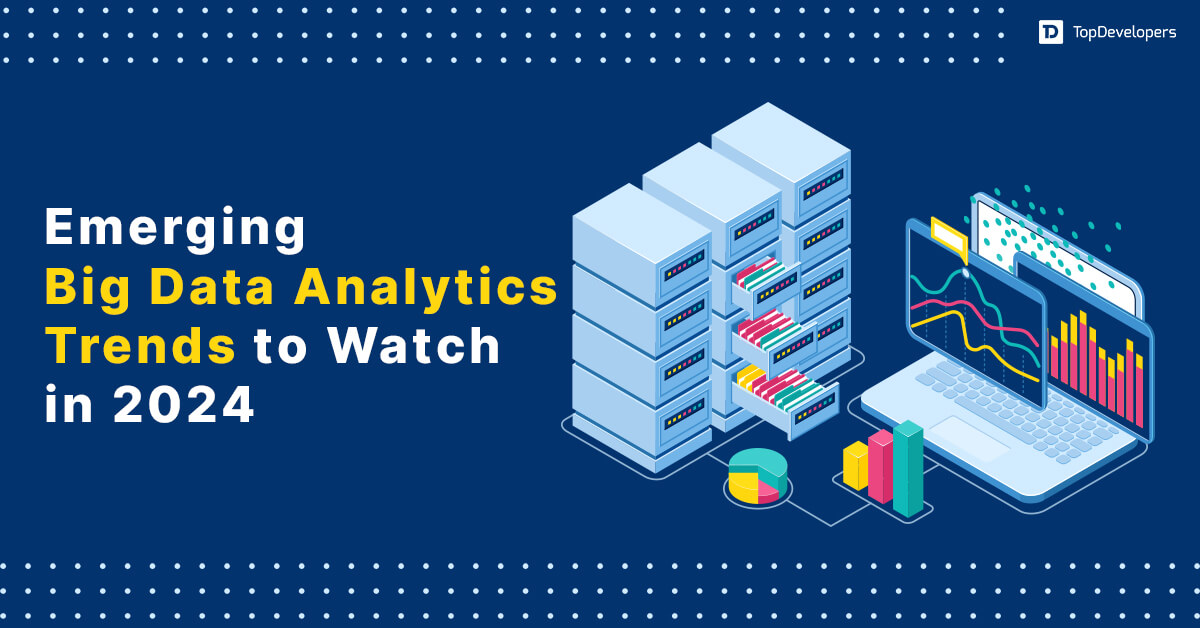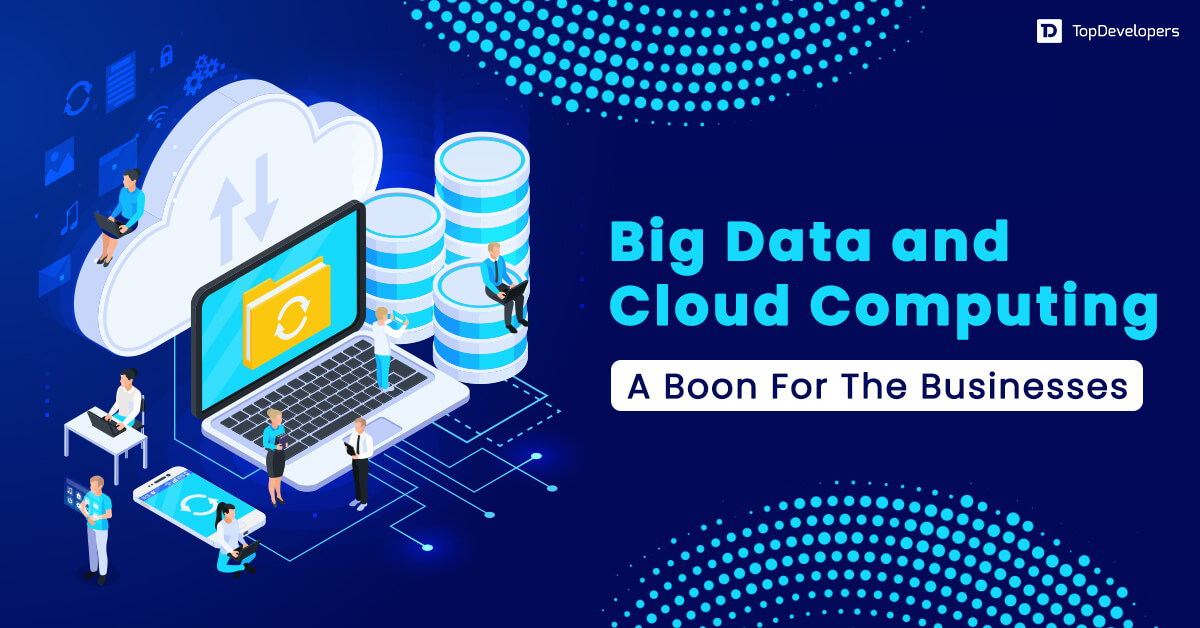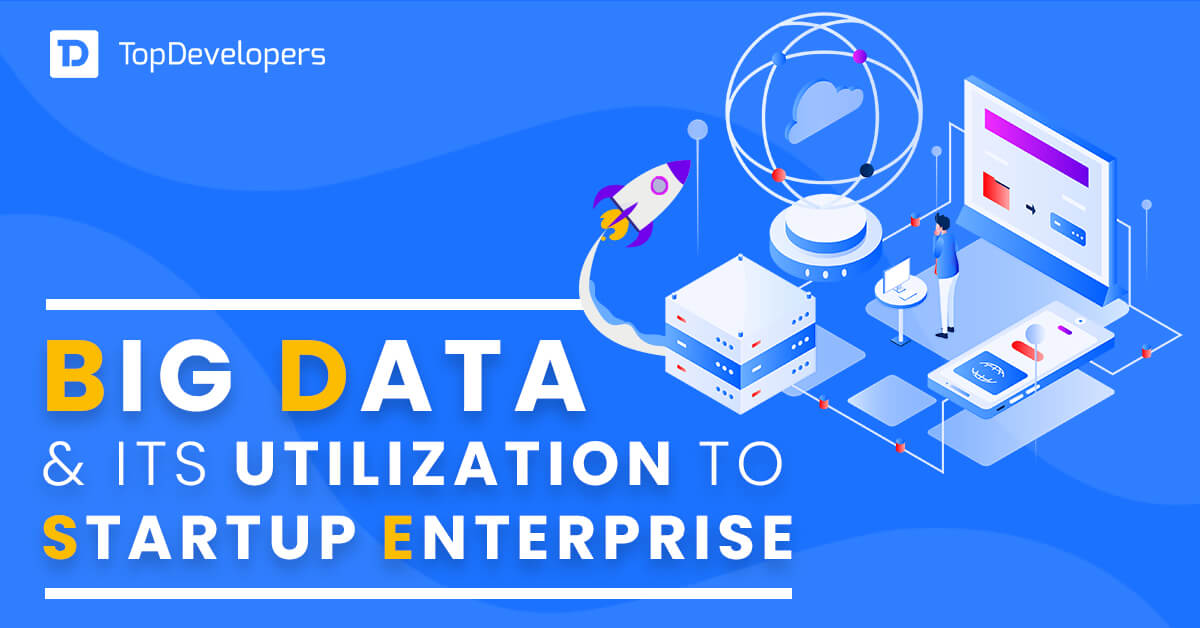
Enterprise Resource Planning (ERP) has been the backbone for businesses for a long time now and will continue to do so. However, the organizations are not able to realize and use the ERP systems to its full potential as they don’t use the majority of the data coming their way. According to research, out of all data collected, only 12% are analyzed and used for work. Thus, organizations, on the whole, are losing a huge chunk of valuable insights by not analyzing the data.
Over the years, ERP has become a vital cog in boosting the productivity of the company, and with the seamless management of Big Data, it can help the company attain better business growth. With the help of the elite Big Data Analytics companies, the organizations can utilize the unanalyzed data, thus increasing the productivity and financial prospects.
The leading Big Data Analytics service providers will allow your business organization to leverage the unused data and club it with ERP software for an enhanced business process. The large amount of data analyzed in this manner will not only boost the business outcomes but will also allow the organization to attain its goals faster and in a more organized way. Hence, Big Data will help your business to succeed and increase ROI.
It is also important to explore the significance of Big Data in augmenting ERP to use it with its fullest potential.
Table of Contents
The need for integrating Big Data with ERP
ERP has been a more significant part of organizations for over three decades now. But it becomes challenging to manage the data through ERP systems as not all the data flows through it. Hence, to curb down this complexity, Big Data tools are developed to distinguish the data sources, manipulate them, and convert them into a user-friendly form. As ERP acts as a data bank for big data systems, both ERP and Big Data can complement each other while working in tandem.
By incorporating Big Data Analytics with ERP, the efficiency of the ERP systems can be enhanced to the next level.
The benefits of ERP powered by Big Data Analytics
Better Data Management
When you have a leading Big Data Analytics firm as your partner, they help your business in handling the onslaught of information coming your way and analyze both structured and unstructured forms of data for the business. The source of data can be social networking sites, blogs, similar purchases made, from business partners or sister companies, and other resources. The information coming from various sources is stored, analyzed, and used as per the requirement arises.
With the data-driven exploration of new horizons, the organizations can speed up their expansion with a comprehensive plan and acquire sharper decision-making skills through Big Data Analytics. Moreover, with better data management and predictive analysis, companies could make excellent sales forecasting, and the exchange of information can be done across the ERP modules.
Improved customer-centric services
Social media networks are quite useful sources of information from where businesses can get a hang of the customer preference and understand their buying patterns. With Big data, the companies can have a complete picture of the likes and dislikes of the customers which helps them provide more personalized services from an extensive range of options. This strategic implementation of business plans, driven by data, will result in enhanced user engagement and in increased revenue for the company.
Moreover, by including advanced technologies such as Machine Learning and Artificial Intelligence, Big Data Analytics can be used to learn the psyche of the customer in detail and thus provide more pinpointed services. Hence, by powering ERP with Big Data Analytics every department of the organization will have relevant data accessible for processing. For instance, a sales executive can have full access to information on the customer’s buying patterns and target the customer more precisely. Thus, this will help them build more profound sales and marketing strategies.
Synchronized Supply Chain Management (SCM)
It is tough for companies to record everything that goes into their supply chain management process. Thus, if you don’t have a thorough insight into what is going on in the SCM, the flow of product from the supplier to the manager may have unforeseen impediments. Integrating big data with ERP will improve the supply chain’s visibility, and businesses can have a detailed view of all the included processes and assets. Big Data Analytics also provides real-time monitoring that will enable the organization to streamline the flow of products and their movement in the supply chain cycle.
Be it inventory, SCM, or production, every aspect of the supply chain management process is paid due attention with the help of Big Data. This helps to maintain the quality and, as a result, increase the customer satisfaction level. Moreover, it will also enable the organizations to make better decisions to meet the changing and rising demands of the customers.
Improving the quality of the hiring process
With Big Data, companies can perform the candidates’ practical analysis of different magnitudes before hiring them for a specific purpose. More in-depth assessment of the job-seeking clients with Big Data Analytics is proving to be highly beneficial for the companies over their traditional hiring methods.
In addition to this, big data predictive analytics will boost product quality, relationship with customers, and guide recruiters in filling the talent gaps with better and skilled candidates. Thus, integrating Big Data with ERP is highly advantageous and recommended for companies willing to enhance their candidate hiring process. The improved ERP systems will have the capability of churning out candidates based on individual assessments. These systems will help in zeroing down on the “perfect fit” for the job position.
Skyrocketing the sales
The collaboration of Big Data and ERP systems will give a massive boost to sales forecasting methods and will make them more accurate. The best Big Data Analytics Companies, along with ERP systems, will provide more in-depth sales-related insights to the retailers, so that they can manage their supply and demand requirements in a better way.
Furthermore, problems such as overstocking or understocking can be handled quickly, and the companies can make use of the available resources in a much better manner. Apart from this, professionally managed data will allow the company to work on its projects and schedule them in a more precise way to keep everyone on the same page.
With access to big data as a service, sales professionals will not waste their time on mundane tasks; rather, they would invest it efficiently in the important ones; moreover, the knowledge of the latest trends in Big Data Analytics will keep your sales team on their toes and enable them to improve their methods.
Scalability with Big Data and ERP systems
Data is the heart of new-age businesses; nevertheless, it is growing by leaps and bounds. Hence, the efficient use of it is the breakthrough factor for any company to reach success.
The combination of Big Data with ERP is being used in different industry sectors such as healthcare, retail, fashion, social media, and many more. As modern industries rely on ERP, combining it with Big Data Analytics can be a massive plus in improving efficiency and ensuring that the utilization of the data is done correctly. Moreover, integrating Big Data with ERP will also provide a broader perspective to the organization and will help them to expand their business operations.
With Big Data, companies can use a myriad of highly advanced technologies that will cater to a better decision-making process for them and help them to stay ahead of the competition.
Winding-Up
Speed with accuracy is the defining factor that differentiates the market leaders from the rest. ERP is the backbone of the business, and big data will give it the utmost strength to help your organization stand upright even in business challenges. Better customer insights will do wonders for your revenue and will help your business to stay ahead on the path of consistency.
 Avantika Shergil
| Sep 24, 2020
Avantika Shergil
| Sep 24, 2020
An enthusiastic Operations Manager at TopDevelopers.co, coordinating and managing the technical and functional areas. She is an adventure lover, passionate traveler, an admirer of nature, who believes that a cup of coffee is the prime source to feel rejuvenated. Researching and writing about technology keeps her boosted and enhances her professional journeying.





